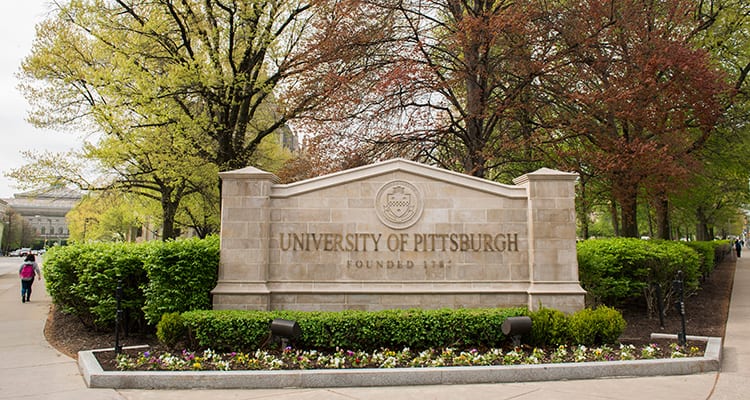
The Pittsburgh Admissions Collaboration wants to get students thinking about college earlier
With the stroke of a pen — well, three pens, to be exact — leaders from three Pittsburgh educational institutions opened “the door to hope and opportunity” for area high school students.
The phrase comes from Quintin Bullock, president of Community College of Allegheny County, who took part in a signing ceremony with his counterparts from the University of Pittsburgh and Pittsburgh Public Schools. The three groups formalized a partnership designed to boost the number of Pittsburgh Public Schools students who earn bachelor’s degrees from Pitt.
Dubbed the “Pittsburgh Admissions Collaboration,” the partnership will first focus on students in the district’s We Promise program, an initiative that helps African-American males qualify for scholarships from The Pittsburgh Promise.
The three partner institutions will implement monthly programming for high school juniors and seniors beginning next fall, with the goal of enrolling an initial group of 10 to 20 kids at CCAC the following year.
Once there, officials say, those students will get academic, social and personal resources to help them eventually transfer to Pitt.
“We want to provide a pathway for Pittsburgh Public Schools students to begin their educational careers at CCAC and seamlessly transfer to the University of Pittsburgh, all the while supporting them as they earn their college degree,” Bullock says.
As the pilot program expands, the partner institutions will work with middle school students “to get them thinking like college students early,” says Marc L. Harding, Pitt’s chief enrollment officer.
“We’re going to try to immerse students in everything that matters as it relates to prepping for college: career education, health clinics, lectures, being on campus (and accessing) resources like the library,” Harding says.
Pitt Pathfinders — the college students who serve as guides — will offer special campus tours to promote Pitt pride and create “Panthers-in-waiting” among Pittsburgh’s middle school students.
Additional program components will be developed through spring.
“We’re in the formative stages of doing this,” says Harding, “and we want to build the model program.”
Officials hope the collaboration will boost educational attainment across the city by engaging youth at an earlier age.
“I get very frustrated when I talk to seniors in high school,” says Harding. “If you’re a group of seniors, there’s nothing I can do to help you prepare for the 9th, 10th or 11th grade. It’s done. There’s nothing I can do about your bank account or the work that you might have done looking for scholarships or preparing to pay for college. Engagement in middle school is critical. … We are not going to move the needle without doing that.”
Patrick Gallagher, Pitt’s chancellor, sees the collaboration as an opportunity to strengthen the city’s ecosystem of educational institutions.
“We view (the collaboration) as, more than anything, an investment in Pittsburgh,” he says. “Degree attainment is not something that happens in a particular point in time. It’s actually a journey. And that journey itself is full of opportunities.”
It’s also a chance to get students excited about their local college options, he says.
“National data show that many students — particularly early age groups — are not dreaming about college,” Gallagher says. “They’re not even talking about college. And they certainly aren’t planning for college. While the University of Pittsburgh may be literally in the backyard of some of these students, too often, we’re not on their academic radar.”
The prospect of college debt may also play a role in students’ lack of engagement. The collaboration’s launch comes in the wake of a national survey conducted by the Washington, D.C.-based College Savings Foundation, in which 28 percent of parents reported that their children had considered avoiding four-year colleges altogether. The leading reason, the foundation says, is that students are concerned about debt.
That’s where Pittsburgh kids have an advantage.
“The Pittsburgh Promise has invested more than $91 million in providing scholarships to help send Pittsburgh’s next generation of leaders to a post-secondary school in Pennsylvania,” says Saleem Ghubril, executive director of Pittsburgh Promise.
“In that time, our scholars have persisted and graduated at rates that are competitive with student data across the country,” he says. “While this is encouraging for an urban school district, we believe we can do better.”
Ghubril applauds the collaboration for devoting resources to the students who need them most.
“This is about continuing to make Pittsburgh a good, just place — one that looks out for its most vulnerable residents,” he says.
Gallagher agrees. “This is our community, and we want our community to be successful,” he says. “We know that setting an expectation for college as early as possible can make a powerful difference in a young person’s life. In today’s world, nothing signifies opportunity more than a degree.”